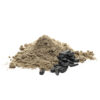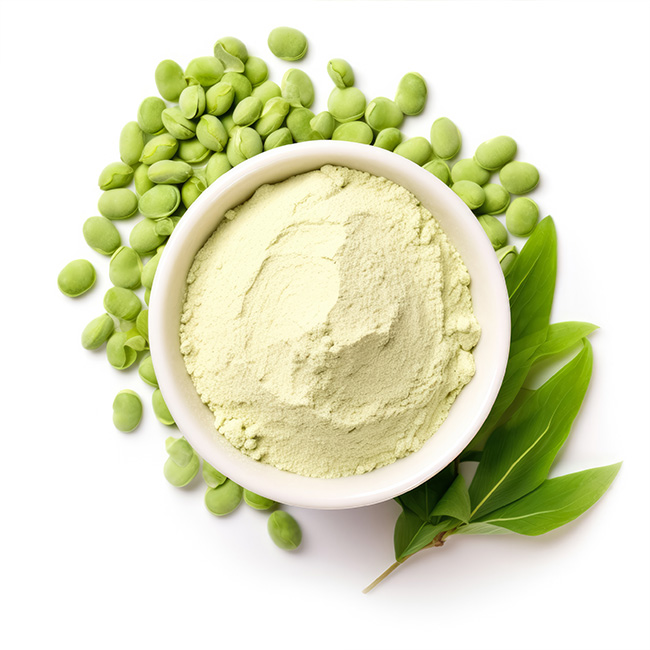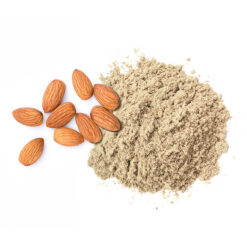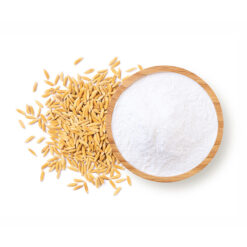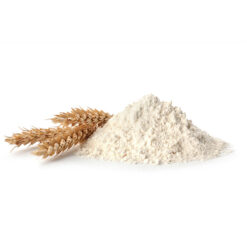Its biggest advantage is its complete amino acid profile – it contains all essential amino acids, which is rare among plant proteins. As a result, bean protein can effectively support the body’s regenerative processes, the construction and repair of muscle tissue and the proper conduct of many key metabolic processes.
The nutritional values of bean protein are versatile enough. This product can be successfully used by both athletes and people with less active lifestyles. Its regular consumption can help improve the body’s overall health and help meet the daily protein requirement, which is crucial, especially in vegetarian and vegan diets.
The mild, neutral flavor of broad bean protein makes it a great match with a variety of foods. They can be added to smoothies, protein shakes, oatmeal, yogurt, salads or used as an ingredient in baked goods and ready meals, increasing their nutritional value.
In addition, bean protein is gluten-free and hypoallergenic, making it safe for people with food intolerances and allergies. Properly processed, it provides an ingredient that is easily absorbed and digestible for the body, without any additional burden on the digestive system.
The ecological aspects of bean protein production cannot be overlooked either. It is a sustainable resource whose cultivation has a low environmental impact, making it a planet-friendly choice. At a time of growing consumer awareness of environmental issues, such an argument is becoming increasingly important, and bean protein certainly meets these expectations.


